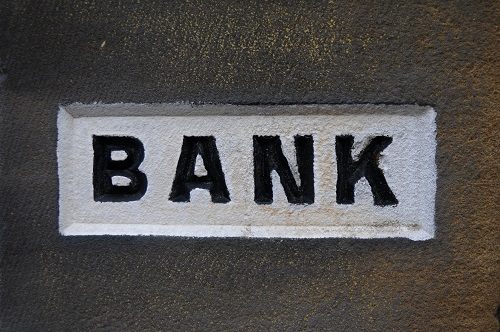In 2012, François Hollande ran for president of France by saying, “My true enemy … is the world of finance.” This month, the Socialist’s former economy minister, Emmanuel Macron, maintained his lead in the race to succeed Hollande by highlighting his work as an investment banker for Rothschild & Co. in a stump speech:
“I’ve spent four years of my professional life there, of which I am very proud,” he said at a campaign stop this month. “I’ve learned a lot from it. It spares me from talking nonsense like others do on the economy and world order, and my country’s rules of business.”
What changed in the intervening five years? In part, the answer is Hollande’s administration, whose poor economic performance gave him the unenviable title of first incumbent since the Fifth Republic was created not to seek re-election.
 But the environment has changed, not merely in one nation, but in the major cities of the EU so drastically that Bloomberg reports the end of “banker bashing,” saying that international financiers “appear to be out of the dock.”
But the environment has changed, not merely in one nation, but in the major cities of the EU so drastically that Bloomberg reports the end of “banker bashing,” saying that international financiers “appear to be out of the dock.”
This transatlantic turnabout came due to the British decision to leave the European Union. The prospect that a “hard Brexit” will leave the City of London without access to the single market has European cities trying to convince the banks to relocate. Since finance makes up as much as 10 to 12 percent of the British economy, it is no wonder that, as one unnamed trade official told The Guardian, “Everyone wants a slice of the City pie.”
Paris alone hopes to gain 20,000 finance sector jobs from London and is seeking them aggressively:
France’s finance watchdog and securities regulator have done their bit: London-licensed operators can now get “pre-authorisation” to open in Paris within a fortnight and even do the paperwork in English.
As part of the same government-backed red-carpet rollout, Paris has also pushed through one of the EU’s most generous expat tax regimes, including tax breaks of up to 50%, in the hope of pulling in international high earners.
It is, however, too soon to say that bankers are no longer targeted by politicians on either side of the Atlantic. Both Hillary Clinton and Bernie Sanders vowed to “jail” financial speculators over the economic meltdown. Macron is far from a free marketeer – that is Francois Fillon, the presumptive frontrunner until hitting a financial scandal of a personal nature. And the candidate vying to defeat Macron in the first round of voting, Marine LePen of the National Front, plans to break up the euro, seize the central bank, and begin printing money to fund her interventionist economic policies. One expert “forecast that inflation in France would rise to 3 percent under the new regime.”
LePen had a hard time finding banks willing to lend to her campaign or party, perhaps in part due to this stance. She ultimately borrowed millions from the First Czech-Russian bank in Moscow. (On Friday, she met with Russian President Vladimir Putin and announced she would consider lobbying the EU to lift sanctions against Russia.)
She has been denounced by the leading trade officials of the continent. “The arguments that Mrs. Le Pen and her party are promoting is not only anti-trade, it’s globalization, it’s anti-immigration, it’s anti- most of the values that the majority of us uphold,” EU Trade Commissioner Cecilia Malmstrom said while visiting Canada on Tuesday to promote the Comprehensive Economic and Trade Agreement (CETA).
The populists are responding to a crisis of faith caused, in no small part, by the financial sector’s inexcusable actions. These reckless and destructive behaviors multiply when they are underwritten by taxpayers, rather than allowing the cost to be borne by the individuals responsible for them. It was the bailout, after all, that launched the Tea Party movement in the United States and fueled much of the populist backlash against crony capitalism.
However, it is vital that people of faith not forget the indispensable role lending and finance play in human flourishing. In April 1950, Pope Pius XII told a gathering of bankers, “Does not the social function of the bank consist in making it possible for the individual to render his money fruitful, even if only in small degree, instead of dissipating it, or leaving it sleep without any profit, either to himself or to others? This is why the services that a bank can render are so numerous.”
Among those enumerated services, the pontiff named the ability to “enable savings to share in useful enterprises that could not be launched without them” and “in a word, the entire economic life of the people” – no small benefit, that.
The UK’s divorce from the EU sounded the British revolt against the unreasonable demands of a distant and unrepresentative government based in Brussels. If Brexit has diversified the continent’s monochromatic picture of finance, to include the socially beneficial undertakings mentioned by the Holy Father, it will have rendered the world yet another illuminating service.
(Photo credit: Steven Lilley. This photo has been cropped. CC BY-SA 2.0.)

